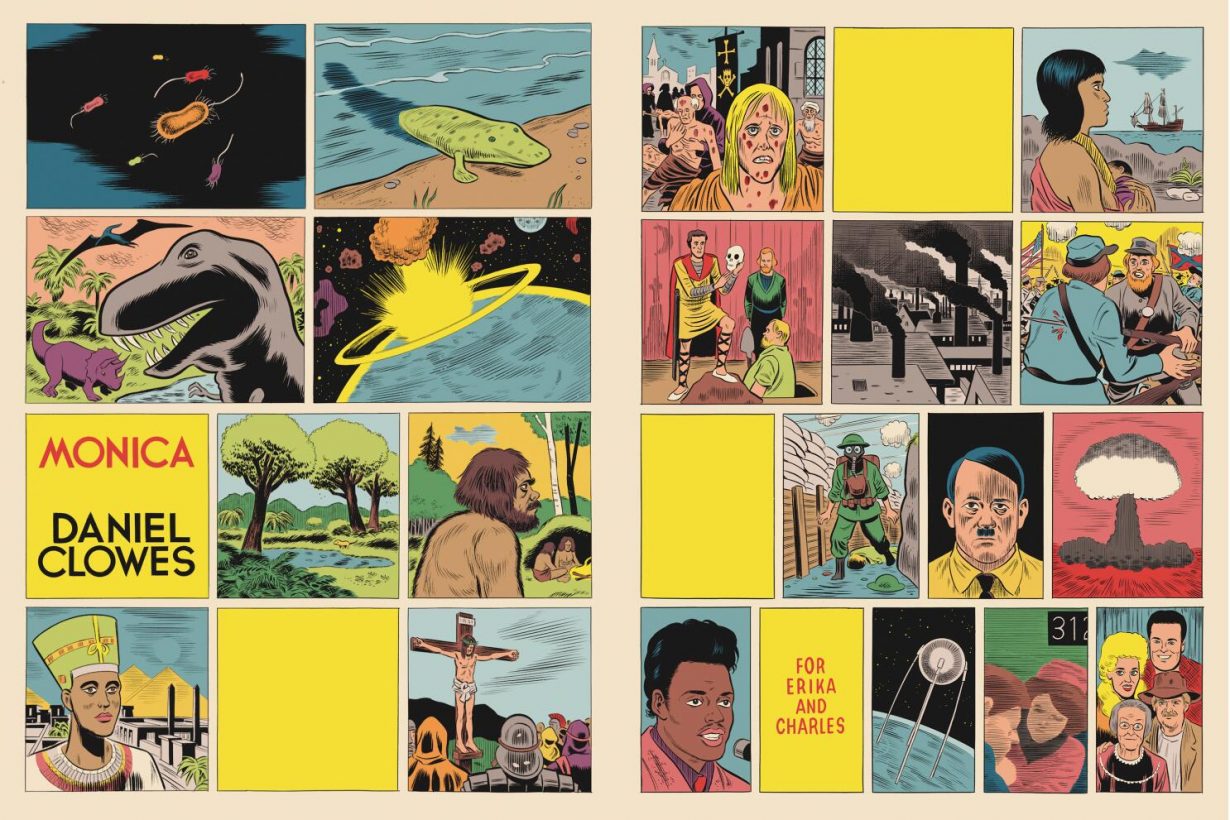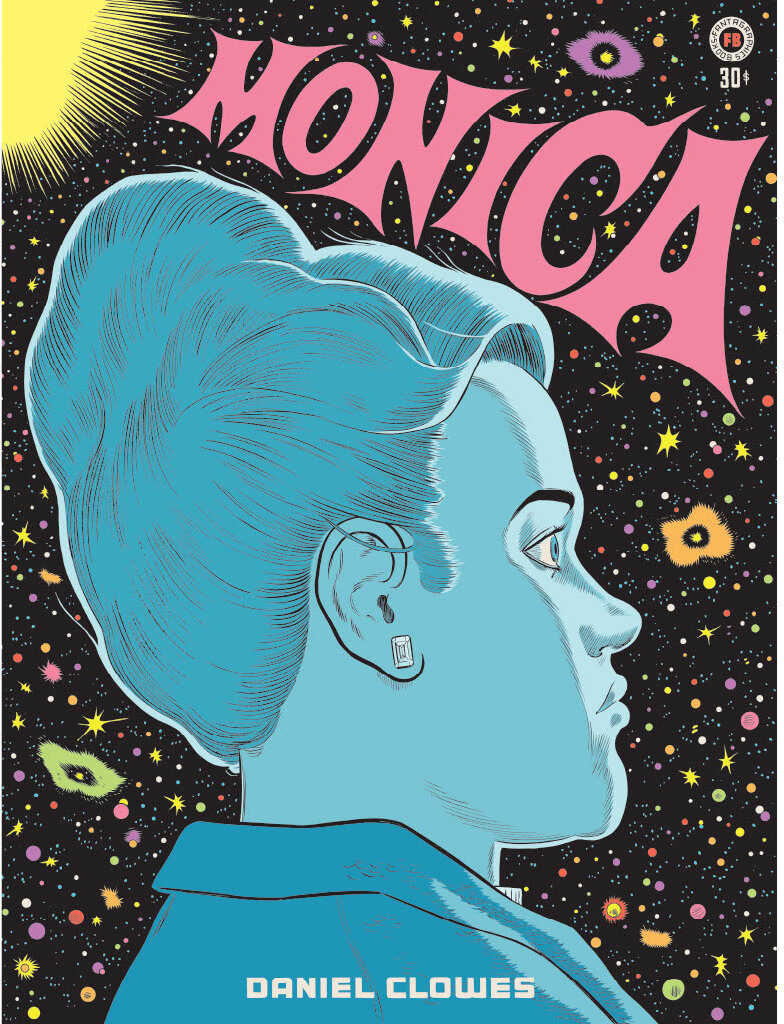Clowes collides sci-fi tropes with emotional complexity and the frustrations of dead-end contemporary life

In Daniel Clowes’s comics the mundane life of ordinary people tends to twine and fuse with the weird, freakish and fantastical. Author of the acclaimed 1997 Ghost World – the zeitgeist-capturing story of American suburban ennui – Clowes has long mined the possibilities of colliding sci-fi tropes with indie-comics culture’s preoccupations with emotional complexity and the frustrations of dead-end contemporary life.
Monica, Clowes’s first book since Patience (2016), is a more subtly woven exploration of history, personal regret and redemption, focused on its titular character’s search for the mother who abandoned her sometime during the 1970s, a casualty of the flower-power generation who disappeared into a cult. As the book follows Monica, from grief-stricken teen mourning the grandparents who raised her, to successful 90s entrepreneur and on to ageing postpandemic Gen Xer, it’s clear this isn’t just a tale about reconciliation, but a sadder elegy for the baby-boomer generation and the optimism of the 1960s as it drifted into the economic and social decline of America during the twenty-first century.

Interspersed with Monica’s tale, however, are altogether more bizarre chapters that tell of incursions of supernatural and demonic forces into everyday life – a sideways homage to a more chthonic tradition of horror comics. Monica’s quiet weirdness lies in how Clowes brings these stranger tales into unexplained proximity of his post-boomer characters: Monica finds that her dead grandfather is communicating to her through an old radio; the ageing cult her mother escapes lives on their founder’s origin myths of benign aliens, their hippy utopia gone disastrously wrong.
But Monica herself is the heir of that counterculture’s solipsistic turn – making her fortune with designer candles, and ending up in a middle-class enclave of Gen X retirees, all makers of artistic and wellness knickknacks. Clowes’s genre-clashing conjures an apocalyptic view of human life and history – the one that produced the counterculture and its fantasies of end times and transcendence – piercing through the mundane everyday. Monica is a cryptic, sometimes disturbing reflection on human aspiration, disillusion and the fading embers of a more radical past, brilliantly told as the collision of two traditions of comic art – fantastic and realist – forever at odds.
Monica by Daniel Clowes. Jonathan Cape, £20 (hardcover)